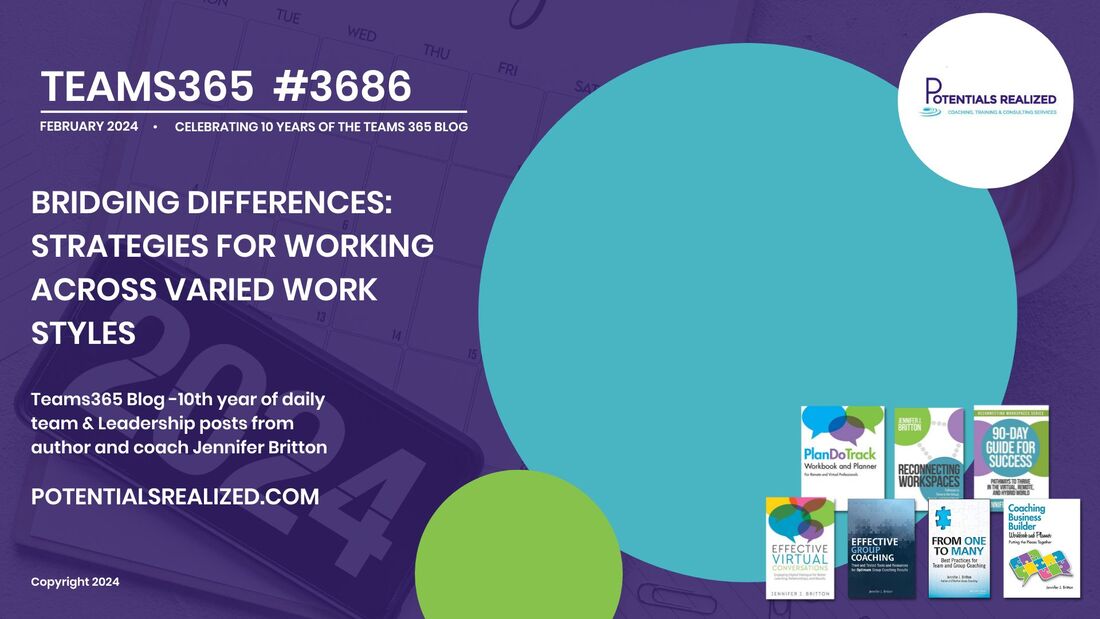1. **Embrace DiSC Diversity**: DiSC (Dominance, Influence, Steadiness, Conscientiousness) assessment tools are widely used to understand behavioral preferences. Recognize that each style brings valuable perspectives to the table. For example, if someone leans towards Dominance, they may prefer direct communication and fast-paced environments, while someone with a Steadiness style may value stability and consensus-building. Adapt your communication and collaboration approach accordingly to accommodate these differences.
2. **Flexibility in Hybrid Work Environments**: With the rise of remote and hybrid work models, flexibility is paramount. Acknowledge that individuals may have different preferences for remote versus in-person work. Some may thrive in the autonomy of remote work, while others may prefer the collaborative atmosphere of the office. Establish clear communication channels, leverage technology for seamless collaboration, and accommodate diverse work preferences to maintain productivity and cohesion.
3. **Strengths-Based Collaboration**: Leverage the strengths of each team member to foster collaboration and innovation. Conduct strengths assessments, such as the CliftonStrengths assessment, to identify individual talents and abilities. Encourage team members to share their strengths and find opportunities for complementary collaboration. For instance, if someone excels in strategic thinking, pair them with someone strong in execution to balance out tasks and enhance overall team performance.
4. **Effective Communication Practices**: Clear and open communication is the cornerstone of effective collaboration across diverse work styles. Foster an environment where team members feel comfortable expressing their preferences, concerns, and ideas. Utilize active listening techniques to ensure everyone feels heard and valued. Additionally, establish communication norms and protocols to accommodate different communication preferences, whether it's email, instant messaging, or face-to-face meetings.
5. **Cultivate Empathy and Respect**: Foster a culture of empathy and respect where differences are celebrated rather than criticized. Encourage team members to step into each other's shoes and understand the motivations behind their behaviors and preferences. By cultivating empathy, teams can navigate conflicts more effectively and build stronger relationships based on mutual understanding and trust.
In conclusion, navigating across different work styles requires a combination of flexibility, empathy, and effective communication. By embracing diversity, leveraging strengths, and fostering a culture of collaboration and respect, teams can harness the collective power of their differences to achieve shared goals and drive success in today's dynamic workplace.
CEO, Head Coach and Author
Potentials Realized | Group Coaching Essentials
Leadership | Teamwork | Coaching
Contact: 1-416-996-8326
Email: [email protected]
Instagram:@ReconnectingWorkspaces @CoachingBusinessBuilder
Pick up a copy of Reconnecting Workspaces: Pathways to Thrive in the Virtual, Remote and Hybrid World at Amazon – https://bit.ly/reconnectingworkspaces.
Check out my latest TEDx talk – Coaching Teams Through Chaos at https://www.ted.com/talks/jennifer_britton_coaching_teams_through_chaos
Set up a call with myself or my team to learn more about how we can support you through our award-winning ICF CCE approved Coach Training programs – https://calendly.com/potentials-realized/group-coaching-essentials

 RSS Feed
RSS Feed





